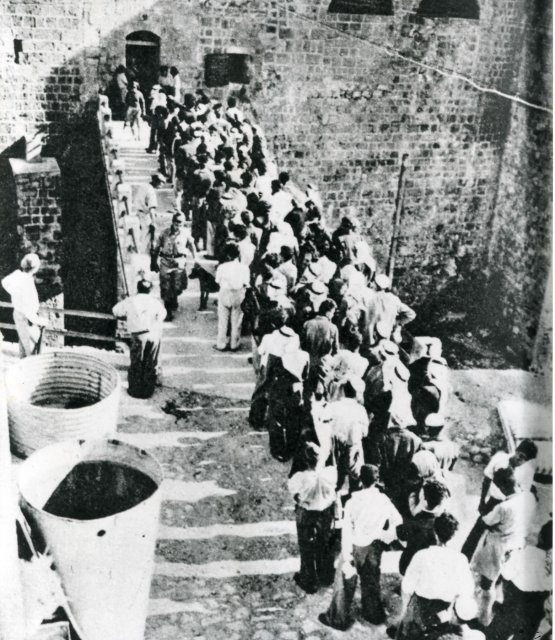The massacres did not only take place against human beings, but also against its homes, trees, and animals, who were not beyond murder and abuse.
At the time, drinking water used to reach the city from a canal that would run from the northern village near al-Kabri, 10 kilometers from Acre. The canal is also known as the al-Basha canal. En route to Acre, the canal would pass through several Zionist colonies. At one of those points, the Zionists infected the water with typhoid, and soon enough typhoid fever spread among British soldiers and residents. In a report, Red Cross doctor, Dr. Domiron, says: “The situation is serious, and the outbreak of the disease has included civilians, military personnel and police.” Moreover, the Brigadier, Bafardaj, who was the director of military services, said that “this is the first time that this pandemic happens in Palestine,” despite the displacement and panic of residents across Palestine at the time. The greater fear was the spread of the plague with the refugees heading to Lebanon.
Preliminary surveys show the number of those infected to be 70 civilians and 55 British people. However, many others were afraid to report their illness out of fear of being detained. It is enough to say that the number of Acre’s residents during that period decreased from 25 thousand to 8 thousand people, due to displacement. As with the case of the other villages where massacres took place, the goal was the same: to expel people either through displacement or murder.
The mayor of Acre was absent at the time, which weakened the efforts to contain the epidemic. Despite the insistence of the ICRC, the municipality was not able to rehabilitate the water canal, “the source of the epidemic.” It doubled the emigration of residents and prevented them from returning to their homes out of fear of getting ill. The main objective of the epidemic was to “prevent residents from returning home.” At the time, as a continuation of the attack, the Haganah intensified its attacks on the city with mortar bombs and artillery. Moreover, Israeli vehicles would circle and call out via loudspeakers: “your choice is to surrender or commit suicide. We will exterminate you until the last man.”
When a number of the city’s dignitaries signed a peace treaty, Acre fell. With its fall, Zionist terrorism began to take over the city. Every young man and sheikh was arrested, all considered prisoners of war despite being civilians. Looting operations spread across the city and the women and children were cast out, with neither food nor shelter.
Lieutenant Petit, who monitored the truce, stated in a detailed report upon visiting the city after its fall: “a systematic operation of looting homes occurred to prevent the residents from returning. A massacre was committed, resulting in the death of 100 civilians, especially from the new city’s residents that refused to decamp to the old city based on Israeli orders.” This testimony brings to mind the story of Mohammad Fayez Sufi, one of the residents that refused to move. Mohammad had miraculously survived while three of his colleagues died after being forced to drink cyanide poison, and had their bodies thrown into the sea.


